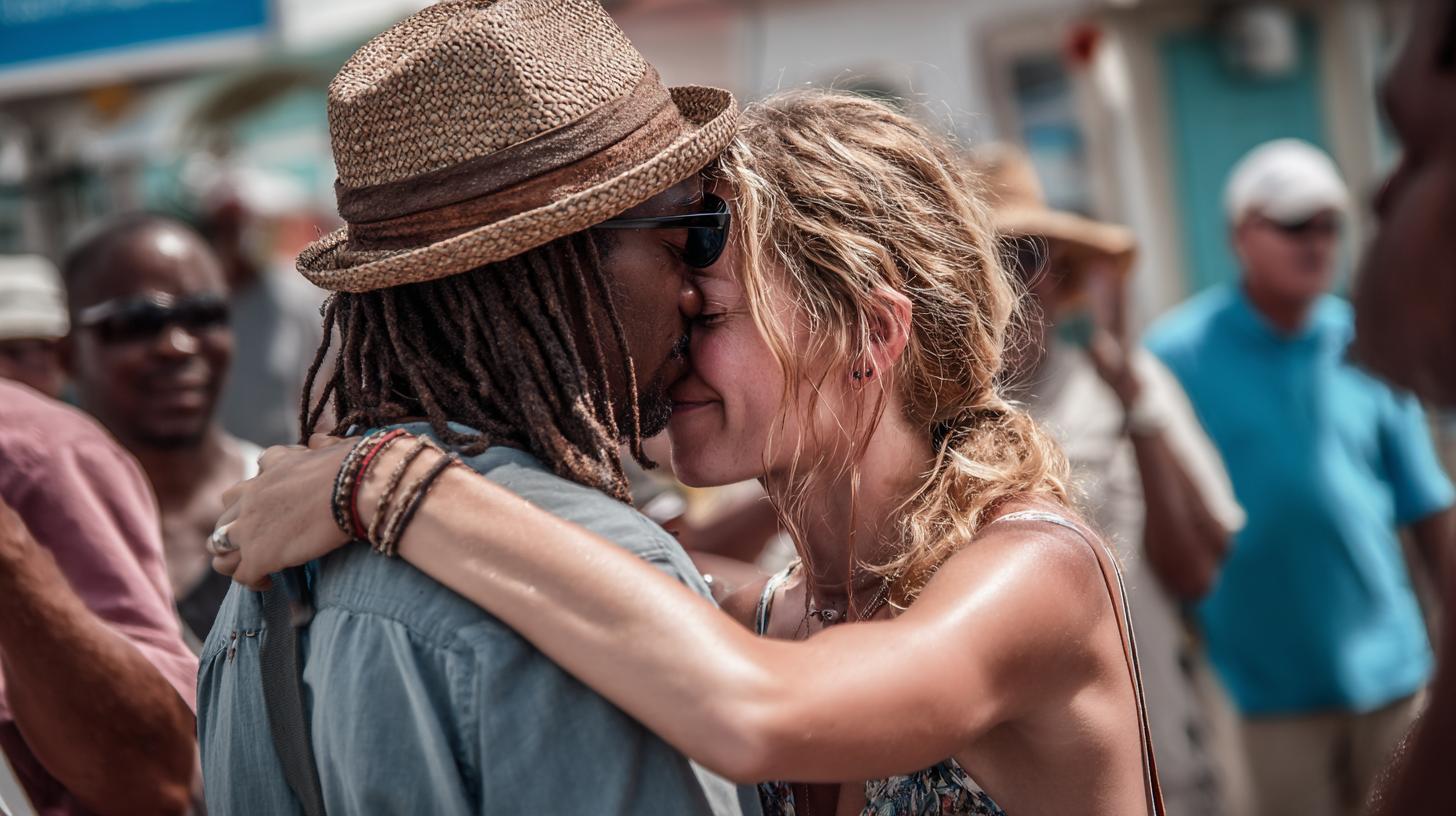Understanding social etiquette Cyprus requires more than just knowledge of its stunning beaches and ancient ruins; it dives deep into the fabric of everyday interactions and local manners Cyprus residents hold close. Greeting customs Cyprus vary notably across age groups, social circles, and even regions, with subtle nuances that an outsider might find perplexing if unprepared. Navigating these conventions is essential to showing respect, building rapport, and engaging authentically with the island’s people.
The culture in Cyprus blends Mediterranean warmth with Eastern Mediterranean influences, creating a unique palette of social norms governing everyday behavior. Whether you encounter a handshake, a hug, or a kiss when meeting locals, each interaction carries its own weight and meaning. This article explores these greeting customs, the underlying social etiquette Cyprus residents practice, and offers clear guidance to approach interactions confidently and respectfully.
The Foundation of Social Etiquette Cyprus: Historical and Cultural Roots
To grasp the interaction principles in Cyprus, one must appreciate the island’s complex history and cultural heritage. Cyprus sits at a cultural crossroads between Europe and the Middle East, and its social norms reflect centuries of Greek, Turkish, and British influence. This melting pot shapes local manners Cyprus express, with generosity and hospitality at their core.
Traditionally, the Cypriot way of greeting a friend or stranger sends messages beyond merely exchanging pleasantries. Every gesture, from the firmness of a handshake to the number of kisses on the cheek, communicates respect, trust, and social hierarchy.
Social etiquette Cyprus blends Mediterranean hospitality with subtle cultural cues that reveal respect and closeness in daily interactions.
For instance, among older generations, formality remains substantial. A firm handshake, accompanied by direct eye contact, is expected during initial meetings. Younger Cypriots, however, might favor more tactile greetings such as hugs or cheek kisses, especially within their social sphere. Comprehending these subtle shifts demands awareness of the island’s layered culture.
Greeting Customs Cyprus: When to Choose Handshakes, Hugs, or Kisses
Among the most noticeable aspects of local manners Cyprus involve choosing the correct form of greeting. In formal settings or first encounters, a handshake usually dominates as the preferred interaction. It symbolizes professionalism, respect, and emotional boundary awareness. The handshake is typically firm but not aggressive, and is often accompanied by the greeting phrase “Yia sou” (Hello) or “Kalispera” (Good evening).
When meeting friends, family, or acquaintances in more informal contexts, the greeting customs Cyprus often shift towards physical warmth. Hugs might occur between close friends or relatives, exuding a sense of welcome and emotional closeness. Likewise, kisses on the cheek, frequently two (one on each cheek), express friendliness and affection and are common among women or between men and women.
The number of kisses can vary slightly; sometimes three kisses are exchanged, but two is the most typical number. Importantly, those unfamiliar with the custom may hesitate, and locals tend to adopt their greeting style depending on the visitor’s comfort level to avoid awkwardness.
Choosing the right greeting expresses emotional tone and social respect—matching formality and closeness is key in Cypriot social etiquette.
In mixed-gender interactions, the greeting customs Cyprus show a degree of conservatism. Men often prefer handshakes when greeting women unless they share a close or familial relationship. Women, however, are more likely to hug or kiss other women they know well. Respect for personal space, especially in public or formal scenarios, is crucial to avoid unintentional discomfort.
Local Manners Cyprus Emphasize Respect and Hospitality in Daily Life
The concept of hospitality transcends mere politeness in Cyprus; it defines the social fabric. From the moment a visitor arrives, hosts demonstrate attentiveness and warmth that manifest through simple but meaningful manners. Accepting invitations, responding to greetings with enthusiasm, and showing gratitude embody local manners Cyprus uphold.
One common example involves removing shoes upon entering a home, a subtle but significant gesture that signals respect and cleanliness, particularly in rural or traditional households. Ignoring this protocol might be viewed as inconsiderate, reflecting poor understanding of social norms.
During interactions, interrupting others or displaying impatience is generally frowned upon. Patience and measured speech typify conversation within Cypriot culture, reinforcing social harmony. Eye contact remains an essential component, reflecting attentiveness and honesty.
Hospitality in Cyprus is practiced through attentive local manners emphasizing respect, patience, and genuine engagement during social interaction.
Culture and Interaction: How Social Norms Shape Everyday Communication
Understanding social etiquette Cyprus means recognizing how interaction styles embody cultural values. The culture is marked by warmth and expressiveness but always bounded by respect for hierarchy and tradition. Conversations typically include inquiries about family and health, showing concern beyond superficial exchange.
The pace of interaction embraces small talk and extended greetings rather than rushing to topics or business. This reflects an essential cultural principle: personal connection precedes formal dealings or practical concerns.
Additionally, gift-giving plays a role in interaction rituals, especially during visits or celebrations. Offering sweets, flowers, or locally produced goods fosters goodwill and cements social ties. Refusing such offerings may be considered impolite unless done tactfully with excuse.
Subtle Nuances in Greeting Customs Cyprus That Travelers Should Know
A visitor’s misstep in greeting can lead to unintended offense. For example, overly familiar physical contact during initial meetings might be regarded as intrusive by locals with more conservative social views. Conversely, a too-formal approach with distant gestures risks appearing cold or disinterested.
Timing and body language matter equally. Initiating a handshake is generally up to the elder or higher-status individual, reflecting social hierarchy. Waiting for the local’s lead helps avoid awkwardness in greeting conventions.
Non-verbal cues also guide interactions; smiling warmly, slight inclining of the head, or moderate proximity enhances communication fluidity. Lavish displays of affection in public, however, are less common and may attract unwanted attention, particularly in rural areas.
The Role of Gender in Social Norms and Greetings on the Island
Gender plays a subtle yet clear role in greeting customs Cyprus. Traditional roles and modesty expectations persist, especially outside urban centers. Male-to-male interactions often involve firm handshakes and occasional hugs when friends reunite. Male-to-female greetings tend to remain more formal unless there is a family connection or established friendship.
Female interactions, conversely, are generally more affectionate with kisses on the cheek and hugs being widespread displays of friendship and kinship. Awareness of these gender-specific patterns is essential for respectful engagement.
While the island shares a core set of social etiquette Cyprus, regional variations do exist. The Greek Cypriot south emphasizes more Mediterranean-style warmth, frequently incorporating embraces and kisses. The Turkish Cypriot north, influenced by broader Turkish customs, may exhibit slightly more reserved greetings, with handshakes dominating initial meetings.
Urban centers like Nicosia or Limassol show a blend of global influence and traditional norms, making the social etiquette Cyprus more flexible but still rooted in local manners Cyprus inhabitants regard highly. Rural communities often maintain stricter adherence to traditional norms and hierarchy.
| Context | Typical Greeting | Gender Considerations | Formality Level |
|---|---|---|---|
| Formal Meeting | Handshake + Greeting Phrase | Men and Women: reserved, handshake preferred | High |
| Family and Close Friends | Hugs and 2 Cheek Kisses | Women generally more affectionate; men may hug | Low |
| Work Environment | Handshake or Nod | Formal, gender-neutral | High |
| Casual Social Settings | Hugs or Kisses (depending on intimacy) | Varies by relationship and gender | Medium |
Tips for Visitors to Respect and Adapt to Local Manners Cyprus
Travelers and expatriates should approach greeting customs Cyprus with openness and patience. Observing local behavior discreetly allows one to mirror appropriate gestures gradually. When unsure, it is safer to start with a handshake and follow the local cues to escalate the level of familiarity and physical contact.
Learning basic greetings in Greek or Turkish adds a layer of respect and warmth that locals appreciate. Simple phrases like “Efharisto” (Thank you) or “Kalimera” (Good morning) signal effort and respect toward the culture. Being mindful of non-verbal communication, such as body posture and eye contact, enhances authentic interaction.
Adapting to greeting customs Cyprus requires observation, respect, and flexibility—starting formally and easing into more familiar gestures is best practice.
It’s also important not to rush interactions or push physical greetings prematurely. Cypriots value the process of building trust through repeated respectful interaction rather than hasty familiarity.
Beyond Greetings: How Local Manners Cyprus Manifest in Broader Social Situations
The island’s social norms extend beyond greetings and influence dining, gift exchanges, and public behavior. For example, when invited to a meal, guests often bring a small gift such as sweets or wine to show appreciation. The table etiquette is generally informal but polite, with sharing and generosity emphasized.
Respect for elders is foundational. Younger people traditionally allow elders to initiate greetings, enter a room first, or be served food first. This respect for hierarchy permeates many other contexts, from workplace conduct to public events.
Public displays of emotion, especially negative ones, are usually subdued, reflecting a cultural preference for harmony and face-saving in social interaction. Noise levels in conversation tend to be moderate; overly loud or aggressive behavior can be perceived as rude or out of place.
Handshakes, Hugs, or Kisses? Making Every Greeting Count
Ultimately, deciphering when a handshake, a hug, or a kiss is appropriate in Cyprus means tuning into the layers of social etiquette Cyprus cultivate. It involves a combination of observing the social context, understanding cultural and gender norms, and reading non-verbal cues effectively. These greetings are not mere protocols but windows into the genuine warmth and hospitality that define Cypriot culture.
Being respectful of local manners Cyprus ensures smoother communication, stronger personal relationships, and a richer cultural experience. Whether visiting for business, leisure, or settling on the island, mastering these subtleties is key to meaningful and memorable interactions.
The right greeting is a gateway to respect, connection, and cultural understanding in Cyprus—each handshake, hug, or kiss tells a story.
Embracing the Island’s Warmth: Your Invitation to Genuine Connection
Engaging with the greeting customs Cyprus offers is an invitation to participate in a time-honored tradition of warmth, respect, and social harmony. Beyond the physical gestures lies a network of values that have shaped island life for centuries. Every handshake extends trust, every hug bridges hearts, and every kiss seals friendships.
This journey through the island’s social etiquette equips you not just with knowledge but with the confidence to interact authentically. Welcome these moments as opportunities to deepen your connection with the culture and people of Cyprus. Let your greetings be more than just rituals—they can become genuine expressions of respect and human connection, enhancing your experience on the island profoundly.
Frequently Asked Questions
- What is the safest greeting for first-time meetings in Cyprus?
A firm handshake combined with a polite verbal greeting is the most appropriate and respectful for first encounters. - How many kisses are typically exchanged in informal greetings?
Usually, two kisses—one on each cheek—are the common practice, though three may occasionally be given. - Are hugs common in professional settings?
No, hugs are generally reserved for personal relationships. In professional or formal contexts, handshakes are standard. - Should visitors remove shoes when entering a Cypriot home?
Yes, especially in traditional households, removing shoes is a sign of respect and cleanliness. - How do gender roles influence greetings in Cyprus?
Men and women may have different greeting customs; men often handshake, while women tend to hug or kiss female friends. - Is public affection common in Cyprus?
Public displays of affection are generally moderate; overt gestures may be frowned upon, particularly in rural areas. - How can visitors politely decline a greeting if uncomfortable?
It’s best to respond courteously with a smile and a handshake, allowing locals to adjust to your comfort level.

